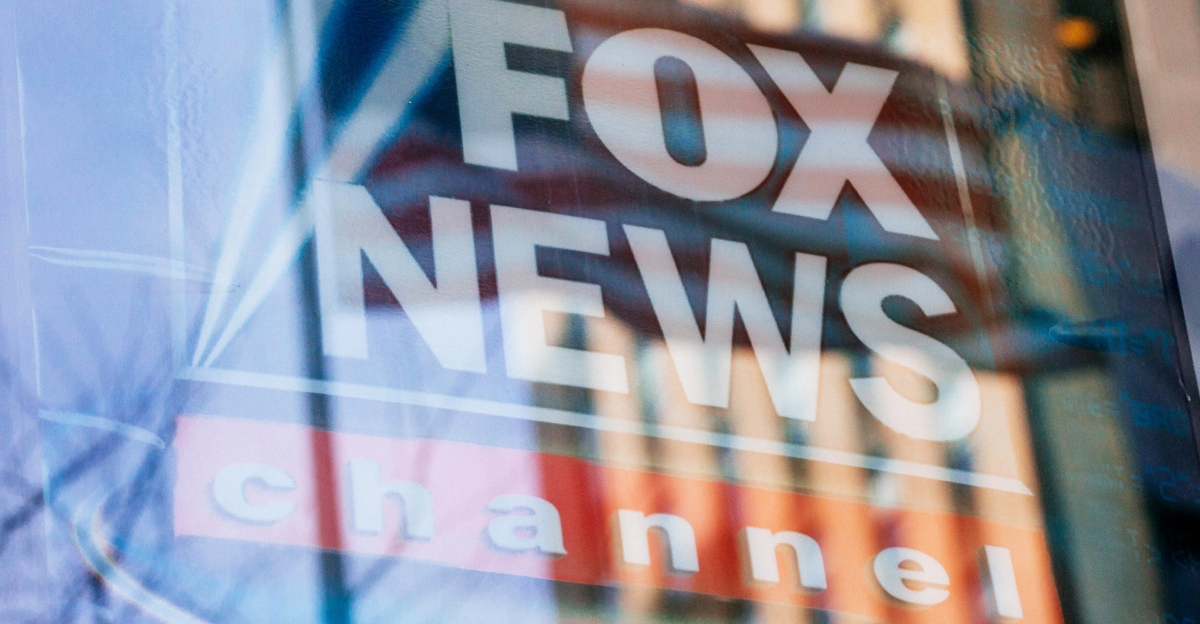Fox’s Top Lawyer’s ‘Screw Up’ Could Help Smartmatic and Dominion Access His Internal Communications

Photo credit: Kevin Hagen, Getty Images.
A top lawyer for Fox Corp. failed to get his license approved by the California Bar for nearly four years — and the screw-up may provide an advantage to several plaintiffs who have filed multibillion-dollar defamation suits over Fox News’ coverage of the 2020 election.
According to a report by Semafor’s Ben Smith and Max Tani, Fox Corp’s chief legal counsel Viet Dinh’s licensing woes “could have major consequences” for the litigation filed by Dominion Voting Systems and Smartmatic by strengthening the plaintiffs’ arguments that Dinh’s internal communications should not be viewed as shielded by the attorney-client privilege.
Dinh is a member of the District of Columbia Bar in good standing, first being admitted in 1997, but was not registered with the California Bar until June 10 of this year. He serves in a key role at Fox Corp. as the “effective second-in-command” to Lachlan Murdoch, the company’s CEO and son of founder Rupert Murdoch, according to Semafor. He’s had that job since 2018 and lives in Los Angeles where the company is headquartered. Smith and Tani assessed him as a “dominant figure at Fox” and noted his close ties to the Murdoch family, even being named godfather to one of Lachlan Murdoch’s sons.
Shawn Martin, a law professor at the University of San Diego who previously served on the California Bar’s Committee on Professional Responsibility and Conduct, called Dinh’s license problems “a pretty big screw-up for a major corporation and a big ticket guy.”
The rules for each state bar organization differ, but generally require attorneys practicing law in their states — as Dinh appeared to have been by working for a California-based company at their California headquarters with a job title of “chief legal counsel” — to complete an application and background check, pass the state’s bar exam, and then renew their membership on an annual basis by paying dues, completing continuing legal education (CLE) hours, report any pro bono hours completed, and so on.
Dinh’s listing on the California Bar website shows that he registered as RIHC status, or “registered in-house counsel,” on June 10, meaning he was subject to a more lenient set of requirements than general members of the state bar.
Under the California Bar Rules, attorneys who are already validly licensed to practice law in other states can register as RIHC to provide legal counsel solely to the company that employs them without taking the California Bar Exam or formally becoming a member of the California Bar. RIHC attorneys still must submit an application, pass the background check, pay annual dues, complete CLE hours, and must inform the bar if they leave their employment.
It’s far from a slam dunk that a court would order the production of Dinh’s communications, but his failure to maintain a valid law license does give one more argument in the plaintiffs’ favor.
And considering Dinh’s high ranking position and the time period of his tenure — overlapping the final years of the Trump presidency, the 2020 election, the Jan. 6, 2021 attack on the U.S. Capitol and its aftermath — it’s conceivable that his emails, text messages, and other records contain information that is sensitive, confidential, or embarrassing for the company, or reference matters that are at issue in the various defamation suits against Fox.
“This news potentially opens the door to his communications with Fox executives,” J. Erik Connolly, the attorney representing Smartmatic, told Semafor after they informed him of Dinh’s license issues. “That is something Smartmatic will be asking for as we move forward with discovery.”
Again, during this period Dinh was a member in good standing with the D.C. bar, and the rules regarding attorney-client privilege are interpreted broadly for the client’s benefit, but in this case where the client was the company directly employing Dinh, the plaintiffs presumably will argue Fox Corp. would have been aware Dinh was not licensed in California for all those years.
Bolstering the plaintiffs’ argument are media reports that Dinh’s role within the company has not been limited to purely legal services. A Jan. 17, 2o21 New York Times article (written by Smith when he was The Grey Lady’s media columnist) about Fox News settling a previous defamation suit by Seth Rich’s family designated Dinh as “a kind of regent who mostly runs the company day-to-day.” Another Smith article for the Times from April of that year called Dinh someone who is “seen internally as the company’s power center.”
“While Mr. Dinh is not running day-to-day programming, he manages the political operation of a company that is the central pillar of Republican politics, and he’s a key voice on corporate strategy,” wrote Smith, citing multiple sources as describing the top Fox lawyer as “the omnipresent and decisive right hand of a chief executive [Lachlan Murdoch] who is not particularly hands-on.” (It should be noted that both Dinh himself and a spokesperson for Fox pushed back on this characterization.)
Semafor’s latest report noted this issue, pointing out that “much of [Dinh’s] role involves operating the business, rather than strictly legal matters,” and that his failure to register with the California Bar until June “could further open the door to questions of whether he was acting as [an attorney] in his job.”
Fox disputed Semafor’s reporting on the timing of Dinh’s application to the California bar:
A Fox News spokeswoman, Irena Briganti, said Dinh’s law license has “no bearing on any pending litigation or matter of privilege.”
“The registration process began years ago, was delayed by the COVID-19 pandemic and was perfected in June,” she said. A Fox News spokesperson said, on the condition of anonymity, that Dinh applied in January of 2019, but the State Bar of California lost Dinh’s application; the spokesperson said he reapplied later that year, but COVID-19 delayed his application.
But the executive director of the State Bar of California, Leah Wilson, flatly rejected both claims.
“The assertions regarding lost or delayed applications are false,” she said in an emailed statement.
It’s understandable why Wilson, the bar’s executive director, might bristle at an accusation that they “lost” an application, but the denial of pandemic-related delays doesn’t square with the known facts.
The office that was tasked with processing applications for prospective new members closed down starting in March 2020 due to Covid-19 restrictions. “More than 200 staff who had not previously worked remotely” were transitioned to remote work, according to the bar’s 2021 budget report, which also noted increased expenses for additional janitorial and cleaning services and decreased revenues from reduced tenant lease revenues.
Multiple communications from the California Bar make reference to pandemic-related delays as specifically affecting processing license applications:
- An April 17, 2020 press release announced the State Bar Board of Trustees had approved several emergency rules “to afford some timing flexibility for licensees who are dealing with the multiple impacts of the pandemic,” including extending several deadlines and waiving late payment fees.
- A March 22, 2021 press release cited 19 “performance metrics” that “fell short of targets, in some instances, due to staffing issues and the disruption and delay the pandemic has caused.”
- A May 24, 2022 email from Leah Wilson to the California Supreme Court requested an extension of provisional licensure programs due in part to lingering pandemic-related “processing delays” by the bar regarding the background checks needed for full licensure.
The details on when exactly Dinh applied for RIHC admission may seem a little “in the weeds” at first glance, but seem likely to be part of Fox’s defense against the plaintiffs’ efforts to access his internal communications. If, for example, Dinh had not bothered to apply at all until this year, that could be used by the plaintiffs to argue even the company wasn’t really viewing his role as purely or even chiefly legal in nature.
Still, if this comes up in court, Fox would likely be expected to present evidence Dinh was pursuing his California bar registration in a diligent and timely manner; the pandemic delays only explain part of the nearly four year period it took to secure his status.






